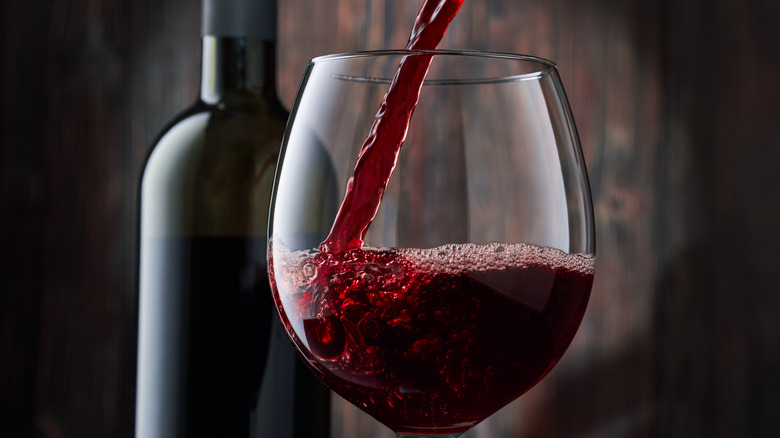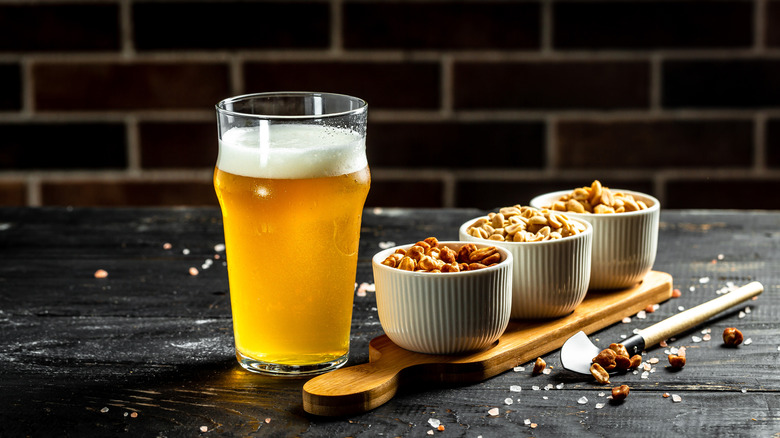Why AI Technology Could Write Your Next Wine And Beer Reviews
You've decided to treat yourself to a nice bottle of wine and want something nice. You find a bottle and, being the smart shopper you are, decide to read a review of it to see if it suits your tastes. The review is incredibly thorough, describing the taste and complexity of the wine so vividly that it seems as if the person is a master of wine or a sommelier. Little do you know that the reviewer hasn't even touched a single drop of wine — in fact, they're not even human at all.
Artificial Intelligence may sound like the farthest thing to do with food, but there's been a surprising intertwining of computer intelligence and the culinary world as of late. The use of artificial intelligence has found use in food processing, such as monitoring food quality and sanitizing equipment (via Food Processing). AI has also been used to lower labor costs and effectively manage supply chain distribution, per SPD Group. The USDA has even reported on the use of AI technology to improve crop yield and resistance to disease. But outside of monitoring delivery systems and distribution lines, can artificial intelligence be advanced enough to accurately describe alcoholic spirits without the ability to conventionally taste them?
AI can write seemingly convincing reviews
As Scientific American reports, a team of researchers managed to construct an artificial intelligence algorithm capable of producing realistic and coherent reviews for beer and wine. The reason for such a particular choice, as opposed to something like literature or film, is because there's a "very unique data set" associated with spirits. Keith Carlson, a Dartmouth College who helped to develop the algorithm, explains that not only do wine reviews contain a specific set of variables such as growing region or year of production, but the similar, limited vocabulary of beer and wine reviews helps to form a realistic review. After all, don't most descriptions for wines and beers lean on adjectives like fruity, dark, pale, or crisp?
For example, in one review reported by Food and Wine, the AI wrote, "This is a sound Cabernet. It's very dry and a little thin in blackberry fruit, which accentuates the acidity and tannins. Drink up." A very impressive choice of words, indeed. Fortunately, sommeliers needn't worry about being replaced by a computer any time soon. The algorithm operated by analyzing reviews previously written by human tasters and compiling them into one description; it cannot actually taste the beverage or generate new information about it, per Scientific American. Human tasters are still vital to the operation of this particular AI and the technology is meant to aid a reviewer, not replace them.

